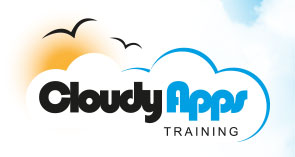


Introduction to Smart Cities - Concepts and Technologies
Duration: 3 Days
Course Background
Smart cities is a concept based on combining a variety of technologies such as cloud computing, data visual and smart sensors that can collect, analayse and provide feedback of a variety of parameters such as traffic congestions, temperature and humidity, pollution .. Smart city technologies are also tied in with other concepts such as the Internet of Things, Pervasive computing , Geographic Information Systems and social networking. The MIT City Science initiative (another synonym for Smart Cities) breaks down the component technologies as follows :
- Urban analytics and modeling
- Incentives and Governance
- Mobility Networks
- Places of Living and Work
- Electronic and Social Networks
- Energy Networks
Course Prerequisites and Target Audience
This course does not require any particular set of technology skills. Rather an imaginative and inquisitive approach to life and technology and a good deal of common sense. This 3 day workshop aims to provide an introduction for planners, legislators and strategic analysts to the concepts and technologies of how computers, computation, and electronic communications can be and are being introduced into the fabric, operation and design of the contemporary modern cities. This workshop will concentrate on how the new information and communications technologies (ICT) and the city have fused into the concept of the ‘smart city’ where smartness alludes to how cities are becoming ‘more intelligent’ via the provision of various services which make it possible for populations to improve their ways of life, their economic productivity and their social interactions. A key underlying principle is consideration of how geography and space provide the informing ideas underpinning the smart city.
Course Outline
- Smart cities in context
- Examples and use cases of how the City is Being Automated and Instrumented.
- Overview of the Development of Wireless, TV, Computers, the Internet and Real Time Control in the City
- Brief history and survey of Turing's legacy
- Origins of computers
- Miniaturisation of computers and convergence of computers with telecommunications
- Current underlying technologies - hardware, software data, distributed network computation, data and orgware (community capacity building)
- Networks and data flows as the underpinnings of a smart city
- The wired city - the computable city
- Graphics and data visualisation
- Convergence of IT and Telecommunications
- Automation, Measurement and Instrumentation
- Location, Movement and Navigation in the City
- Embedded sensor systems, mobile smart devices, self organising networks
- Networks, Flows and Big Data
- The city as a collection of Flow Systems
- Coupled Networks
- Flow of Materials, People, Energy, Informationv
- Transport - of material networks and electronic networks
- Sensing, Measuring and Simulating Flows in Cities
- Measurement, Instrumentation and Automation
- Sensing location and movement in the City
- Issues of Confidentiality, Privacy and the Surveillance Society
- Urban information systems and the growth of Big Data
- Information - sources and origins
- Databases and Transaction processing
- Municipal information systems
- Geographic information systems
- Emergence of BigData
- New databases technologies for large volumes of data
- Data mining and data fusion
- Cities as an information services delivery system
- Information Services accessed via the Web
- Information provision
- Real time data collection
- Embedding computers into the Built Environment
- Retail services
- Public services
- Travel Information services
- Open Government and smart cities
- Information and its meaning - Ontologies and the Semantic Web
- Usable information - from Web Mapping to City Dash Boards
- Data integration
- Open data and open government
- Location and Emergency Response services
- Web Mapping and data visualisation
- Real time sensing and real time data visualisation
- Planning and the smart city - representation, modelling and prediction for real and virtual reality cities
- Adapting 2D maps to 3D environments
- Virtual reality
- Augmented reality
- Applied Visual Gaming
- Simulation and Prediction of Urban Environments
- Mathematical modeling of cities
- Science of Cities
- Combining of Simulation and Representation
- Data driven modeling
- Forecasting and Predicting
- Digital Participation and Social Media
- Location and Emergency Response services
- Web Mapping and data visualisation
- Real time sensing and real time data visualisation
- The Participatory City
- Coupling networks, services and people
- Electronic communities
- Social Media and the City
- The evolution of handheld devices
- Social networking
- Email and high speed communications
- Extracting social data from social networking systems